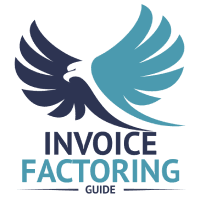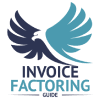
If you haven’t used invoice factoring for small business needs before or are new to invoice factoring services, you might be surprised at all the ways it supports business growth. We’ll explore some of the advantages of invoice factoring below so it’s easier to see how it fits into your overall strategy.
Invoice Factoring for Small Business Needs: How it Works
Often considered an alternative to a business loan, factoring unlocks the working capital in your outstanding invoices. Instead of waiting weeks or months for your B2B clients to pay, you sell your unpaid invoices to a factoring company at a slight discount and receive up to 95 percent of the invoice’s value upfront. When your client pays their invoice, you receive the remaining sum minus a small factoring fee.
It’s easier to qualify for factoring than a bank loan. Things like time and business and your credit score are less of a concern because your client is paying the invoice. It also differentiates itself from options like merchant cash advances and lines of credit because it’s flexible, and your business has no debt to pay back.
6 Ways Invoice Factoring Boosts Small Business Growth
When you choose invoice factoring for small business needs, you’ll also find that it supports business growth in ways that traditional funding options don’t.
1. Invoice Factoring Enhances Cash Flow
 Four in five small business closures can be tied back to cash flow issues, according to the National Federation of Independent Business (NFIB). This is because small businesses typically have fewer resources to draw from, so even minor fluctuations in cash flows can make it impossible to keep up with expenses.
Four in five small business closures can be tied back to cash flow issues, according to the National Federation of Independent Business (NFIB). This is because small businesses typically have fewer resources to draw from, so even minor fluctuations in cash flows can make it impossible to keep up with expenses.
Factoring shortens the period of time between completing work or delivering goods and getting paid to address this. The payment will typically hit your bank account within two business days of submitting the invoice to your factor. However, some invoice factoring companies also offer same-day payments or payments within one business day.
This means issues like slow-paying customers, seasonality, and cash flow gaps caused by rapid growth are no longer an issue. Businesses that might otherwise struggle get their cash upfront and can apply it to payroll, inventory, or anything else business owners and leaders deem necessary.
2. Invoice Factoring Mitigates Customer Payment Risk
Around 1.5 percent of receivables become bad debt on average, according to TSI. That’s money your business earned but will never collect. Keeping the figure as small as possible is essential to ensure your business remains profitable and has the cash it needs for its expenses.
Your invoice factoring company will run customer credit checks as part of the approval process and will let you know how much credit you can extend to any given customer without exposing your business to unnecessary risk. While you ultimately decide who you want to work with and how much credit you’re willing to extend, your company will likely see reduced bad debt by following the factor’s guidelines.
You may also be able to choose between recourse and non-recourse factoring to reduce your payment risks further.
- Recourse Factoring: With recourse factoring, your company assumes the risk if a client doesn’t pay an invoice. This usually means you provide the factor with another invoice in its place or repay the balance. Most businesses choose this option because it’s more affordable, and credit checks already reduce payment risks.
- Non-Recourse Factoring: With non-recourse factoring, your factor assumes the risk of non-payment and absorbs the loss if your customer doesn’t pay. It costs a little more, but your business is unaffected if an invoice goes unpaid.
3. Invoice Factoring Frees Up Time for Business Growth
More than two-thirds of midsized businesses spend 14 hours per week on invoicing and collections-related tasks, according to Intuit surveys. That works out to 56 hours each month chasing invoices; a task often left to the business owner.
When you work with a factoring company, they take over the collections process for you. Some will even take care of invoicing and other back-office tasks to free up more of your time. That way, you can focus on the day-to-day activities that grow your business.
4. Invoice Factoring Enables Expansion Opportunities
Most growth opportunities have a very small window of viability. For instance, if a competitor closes or can’t serve its customer base, you may only have hours or days to spring into action, fill the unmet need, and gain new customers. Unfortunately, most traditional funding sources take weeks or months to provide cash.
For businesses in North Carolina, this challenge can be addressed through North Carolina invoice factoring, which provides fast, flexible access to working capital, enabling small businesses to act quickly on local growth opportunities when timing matters the most.
Because factoring can give you an immediate cash injection that you can use toward anything you wish, and the amount you can receive scales with your business, it’s easier to seize opportunities as they come up.
5. Invoice Factoring Promotes Financial Stability and Planning
As mentioned earlier, four in five small business closures are tied to cash flow issues, primarily because even slight variances can make cash flow unpredictable. When you don’t know how much working capital you’ll have at any given moment, it’s impossible to know when it’s safe to pay business expenses or invest in growth.
This also means small businesses often run short on cash and are pushed into expensive funding options because they’re the only choices available or the only way to get cash on short notice. The added expense eats up precious working capital, making it much harder for the business to get ahead.
Factoring allows for steady cash flow. You can be paid as soon as goods or services are delivered, so it’s much easier to budget and plan. Plus, you’re less likely to leverage expensive funding options, so your business is always moving forward instead of struggling to pay off debt accrued yesterday.
6. Invoice Factoring Enables Better Supplier Negotiations
Suppliers tend to take better care of clients who pay their bills on time. They also often offer discounts when businesses place larger orders or pay in advance and early. This preferential treatment is often only available to larger businesses with more working capital.
However, small businesses that leverage factoring can use cash toward supplier payments to negotiate better deals and qualify for discounts. This may ensure you always have the supplies you need and help keep more money in your pocket.
Factoring vs.Traditional Small Business Loans: A Strategic Advantage
When it comes to small business financing, the decision between opting for invoice factoring and traditional bank loans is critical. While bank loans have been a conventional choice, factoring presents a unique and often more advantageous path for managing and growing your business. Unlike loans, which can be restrictive and depend heavily on credit scores and lengthy approval processes, invoice factoring accelerates access to working capital without incurring debt.
Factoring companies typically release up to 95 percent of the invoice amount within a matter of days, enabling small businesses to maintain steady cash flow and focus on growth rather than financial survival. This immediate liquidity is crucial for small businesses that need to adapt quickly to market conditions, seize growth opportunities, and stabilize operations without the typical wait associated with bank loans.
Additionally, the flexibility offered by invoice factoring companies allows for a more tailored approach to each business’s unique needs. Whether you’re dealing with customer invoices or want to take advantage of rapid growth opportunities, factoring can provide the swift financial support necessary. With factoring, you’re not just obtaining finance; you’re crafting a strategic partnership that aligns with your business’s operational goals and financial health.
Learn More About Invoice Factoring for Your Small Business
Check out our invoice factoring guide for more information on how the process works, or get matched with a company that offers competitive rates by requesting a complimentary factoring quote.


About Invoice Factoring Guide
Related Insights
Get an instant funding estimate
Results are estimates based on the calculated rate and the total invoice amount provided.
Actual rates may vary.
Request a Factoring Rate Quote
PREFER TO TALK? Call us at 1-844-887-0300










